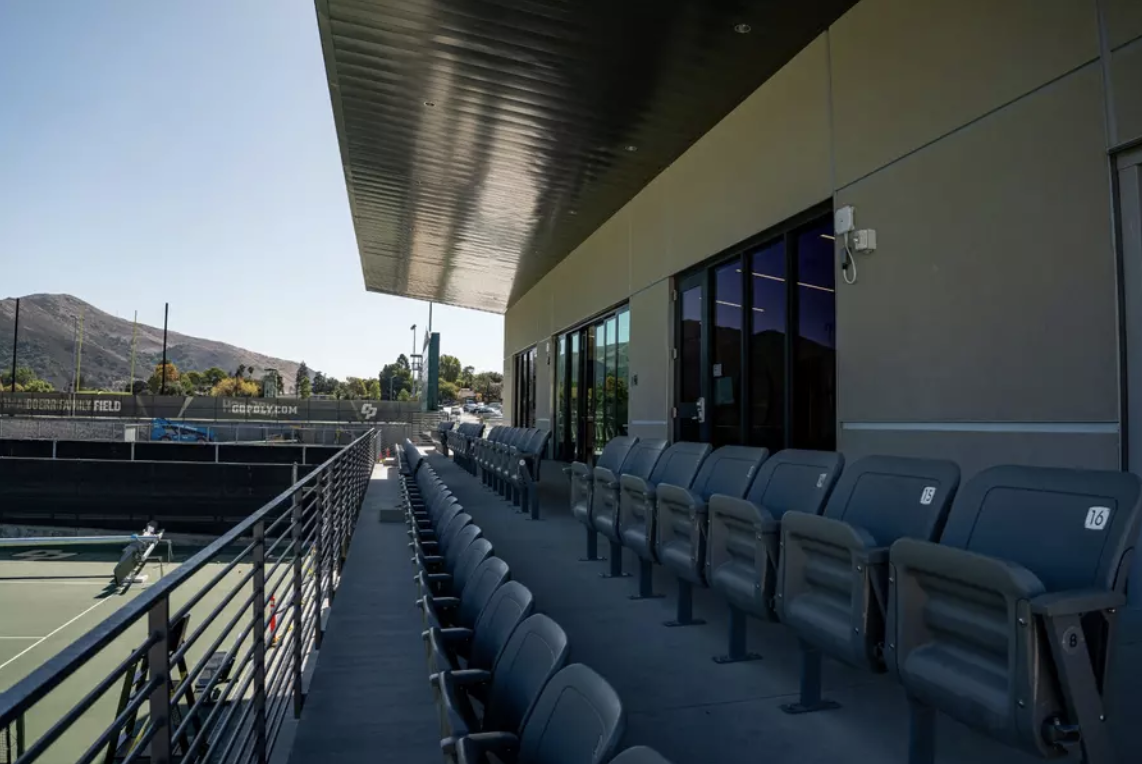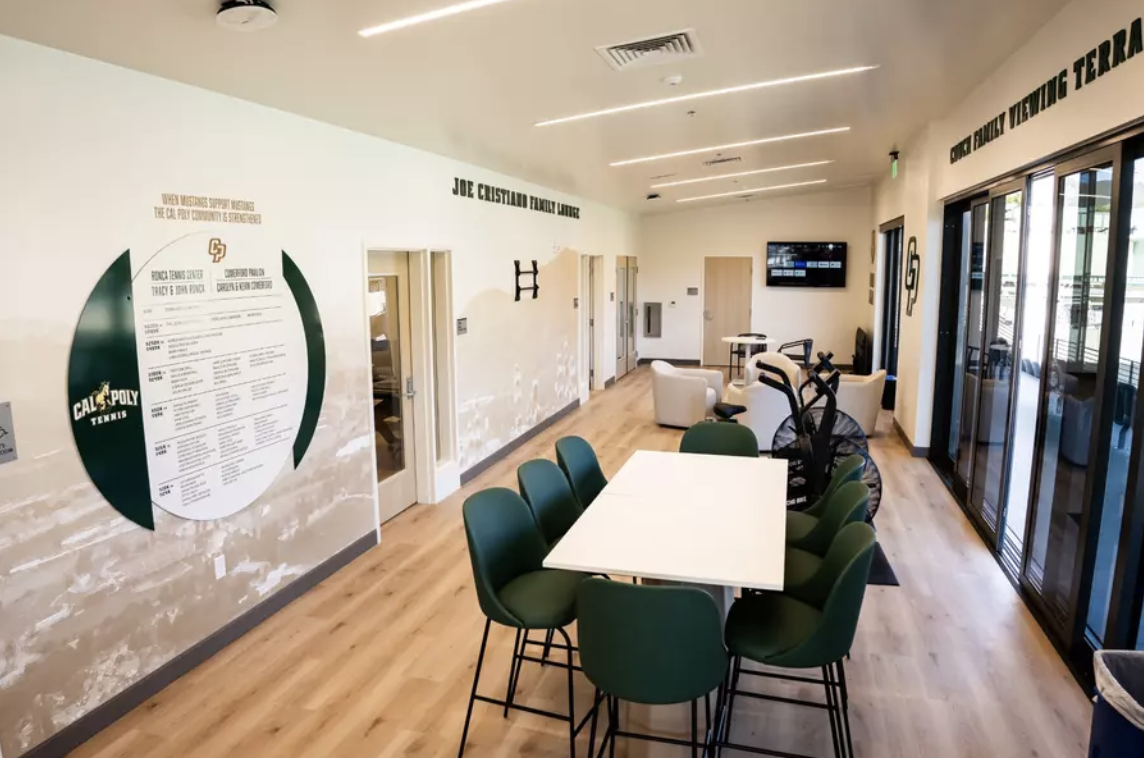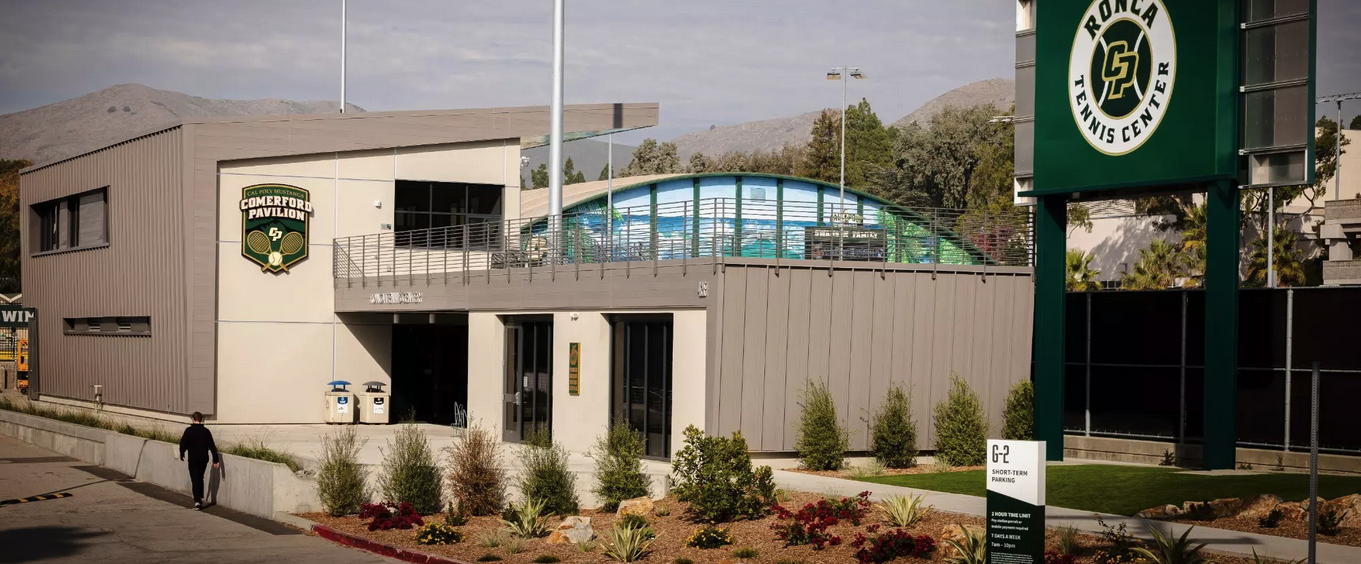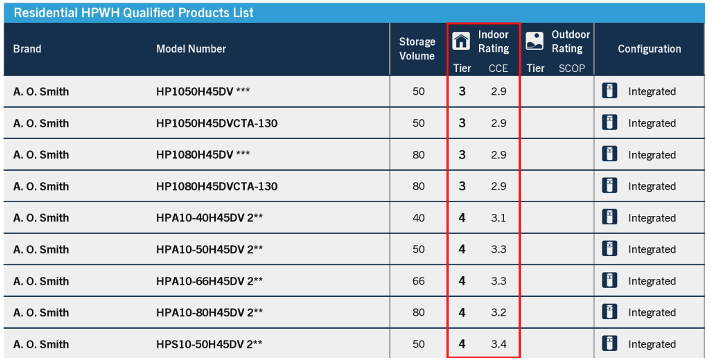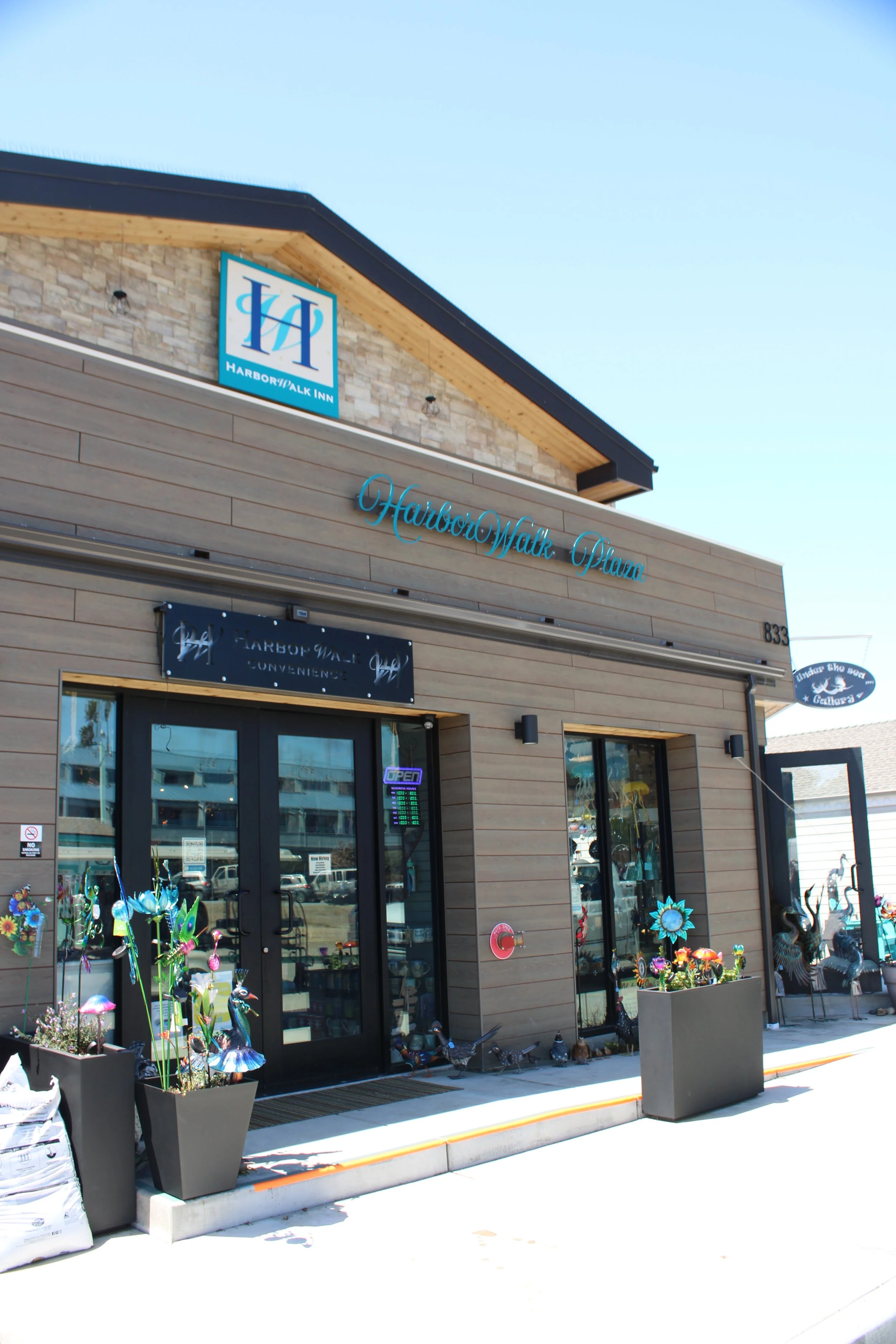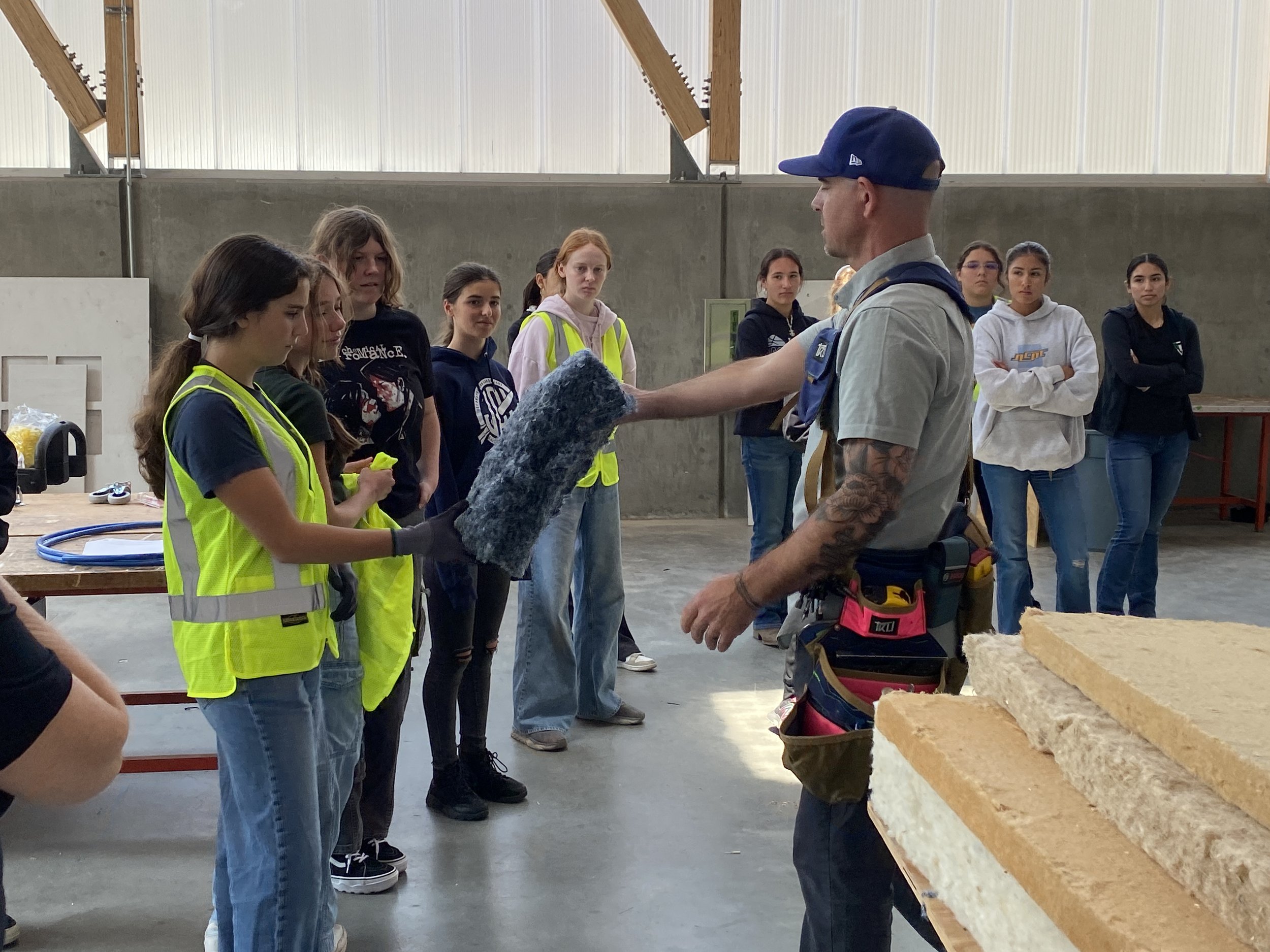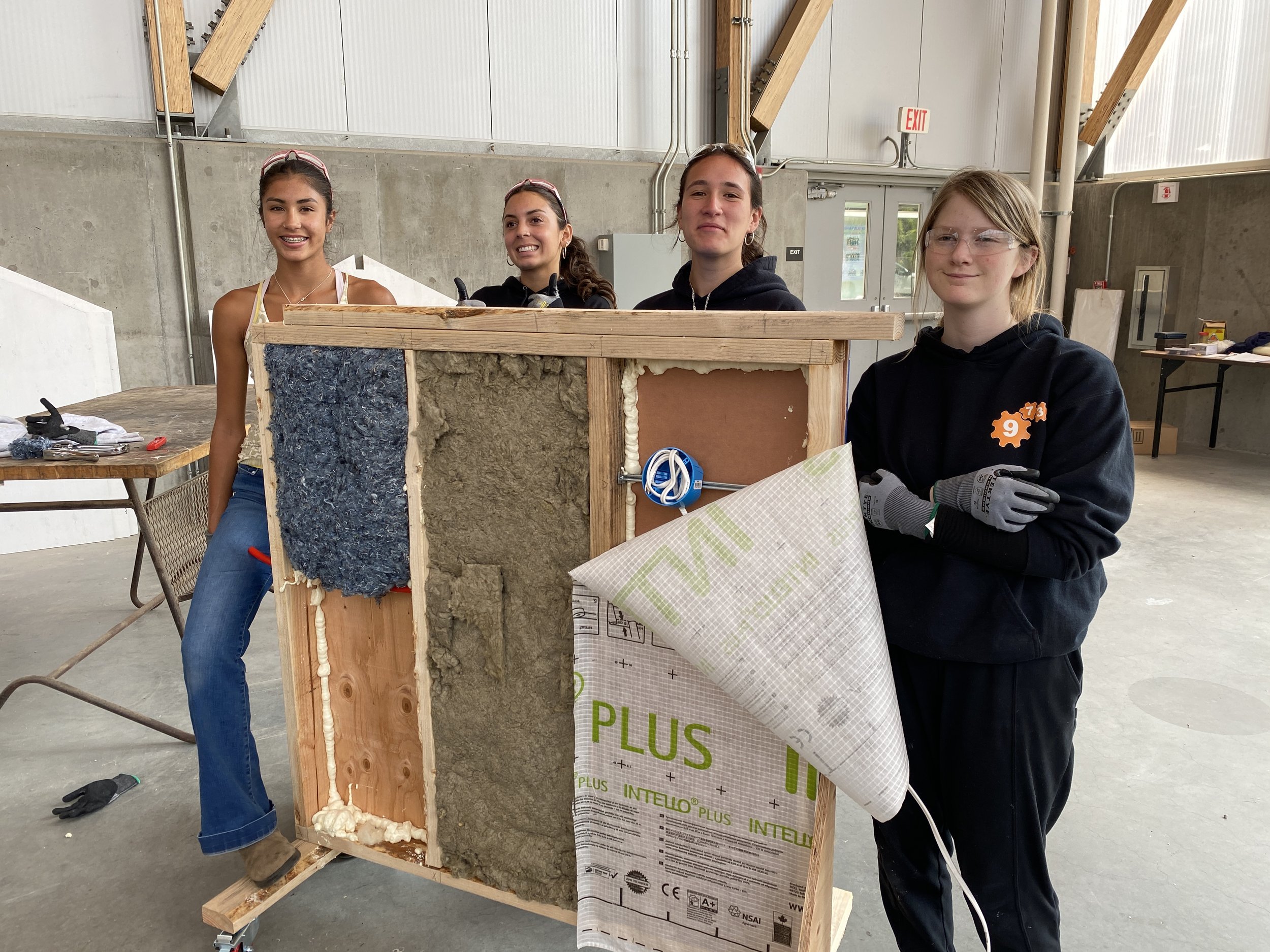The Cal Poly tennis programs have a new home on campus - a two-story facility that provides elevated seating for fans as well as player lounges, coach offices, team meeting space and locker rooms.
In pursuing LEED certification, the project created open space (hello roof deck!) and reduced heat island effects for the comfort of spectators. It secured the majority of its points in the energy category, incorporating enhanced commissioning and offsetting nearly 25% of its annual energy use through campus PV production.
Courtesy of Cal Poly Athletics
The design team was also able to reuse an existing support building on the site to create the adjacent snack and juice bar, connected to the clubhouse under that rooftop deck. By retaining over 60% of the structure, the project achieved almost all the points available in the Building Life Cycle Impact Reduction credit.
The project team included:
PBK Architects
Cannon Corp., Civil
SSG Engineers, Structural
3C Engineering Inc., MEP
Maino Construction
In Balance Green Consulting - LEED certification services
Congratulations!!


